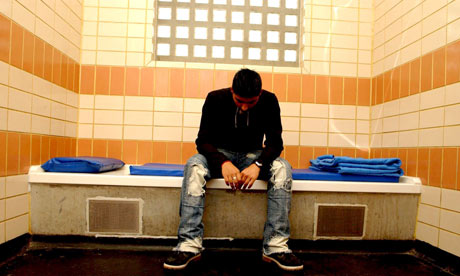
When Norfolk and Suffolk police authorities took the decision to collaborate and build six new custody centres – Police Investigation Centres (PICs) – last February, it presented a considerable challenge and a huge opportunity.
With all old custody facilities to be decommissioned, many officers would have had to take their arrests further, to unfamiliar buildings and often across county borders. However, the new PIC buildings gets around the problem and have been excellently received, offering plenty of capacity with bright and airy conditions for both detainees and staff.
So how did we make the best of this new environment? Our approach could be summed up in three words: efficiency, consistency and familiarity.
Our existing custody suites all had different processes. Often this was due to the limitations of the buildings they were in but also because of independent cultures that had developed over many years. In our case the situation was complicated further because we were dealing with two forces.
Our first step was to review each task undertaken during the custody process to understand what demands there were, discounting unnecessary bureaucracy where we found it. We then divided the tasks into specific roles for each member of staff to undertake. This not only means that work will be shared out more evenly but it introduces a level of accountability which in turn leads to better service.
A good example of this was incoming phone calls. A huge proportion of calls were not being answered, which not only lead to frustration for the caller but created an environment where the phone was constantly ringing as callers tried the line time and time again. By making this task the responsibility of an individual team member, we found that most calls were answered first time around and the working environment was much calmer.
After defining the tasks and roles in the existing custody suites, we set out to achieve consistency across all the new PICs, not only in the processes, but in the layout of the buildings, the products used and paperwork completed. The concept was simple: if you are an arresting officer, solicitor or interpreter dealing with a detainee, you should receive the same service and go through the same process regardless of the location.
In its simplest form this means being confident that if you need a certain document, it will be in the same drawer, in the same room at each PIC. Just like knowing where the sugar is in your local coffee shop.
Once you have consistency, familiarity will follow, and not just for those visiting the PICs but for the staff who work there. Due to our standard working practices we are able to move staff between sites easily and efficiently. Even the detainees become accustomed to the standards we expect from them, allowing us to keep the PICs clean and operating smoothly and safely.
Chief inspector Roger Wiltshire is the head of custody services for Norfolk and Suffolk police authorities
This article is published by Guardian Professional. Join the Guardian Public Leaders Network free to receive regular emails on the issues at the top of the professional agenda.







